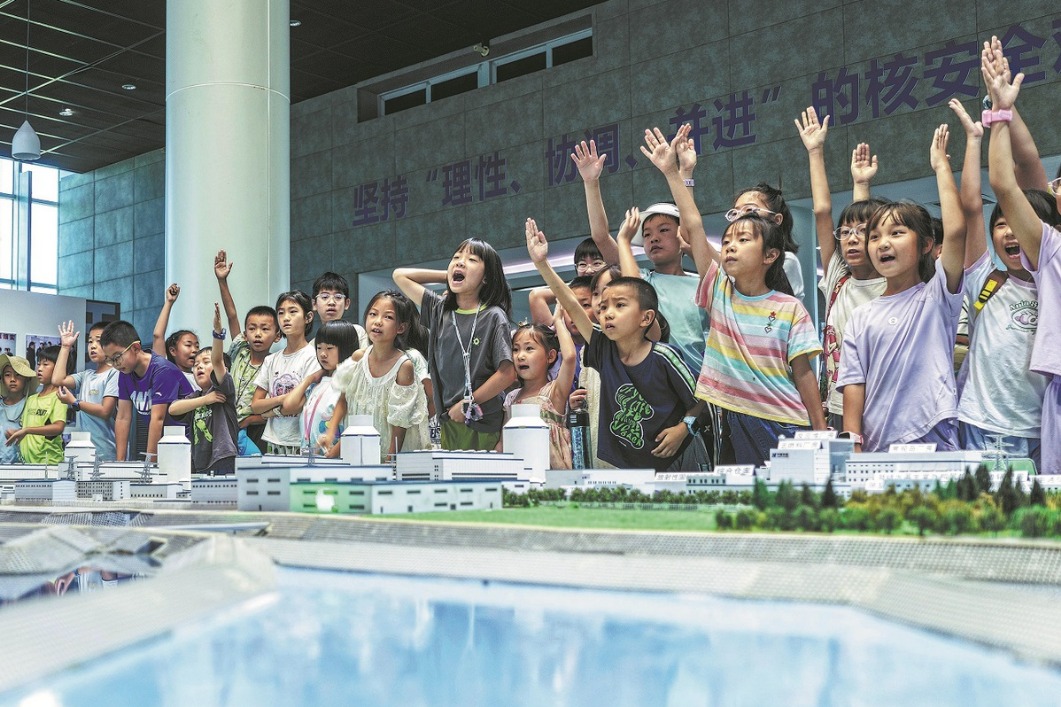Measures aim to curb formalism at grassroots
21-article regulation seeks to streamline workflow and improve efficiency

China is intensifying its fight against red tape with a series of targeted measures aimed at freeing grassroots officials from unnecessary meetings and tedious reports.
To curb formalism and bureaucracy, the general offices of the Communist Party of China Central Committee and the State Council have issued a regulation calling for the refinement of a long-term mechanism to reduce burdens at the primary level.
The 21-article regulation, which was made public on Wednesday, sets specific requirements for streamlining workflows and improving efficiency, with the goal of allowing grassroots officials to devote more time and energy to practical work.
Among its provisions, the regulation mandates strict control over the number of documents generated and meetings held, with content required to be concise and to the point. It also favors virtual meetings via teleconferencing or video link over in-person gatherings.
In addition, the regulation stresses the need to efficiently use digital platforms and mobile applications in handling administrative affairs. It states that grassroots officials should not be unduly burdened with excessive data collection or redundant reporting requirements.
Zhang Zhongjun, an official at the Party School of the CPC Central Committee, said in an article posted on the school's WeChat account that streamlining red tape through systematic measures enables grassroots workers to focus on real issues and better serve the public.
"It's crucial to implement the regulation and optimize a long-term mechanism for reducing burdens at the grassroots level," Zhang said. "Measures such as streamlining documents and meetings, and effectively using government service apps also help free them from formality and bureaucratic routines."
While building a system to reduce red tape, China is also urging departments to remain vigilant and has exposed cases of formalism and bureaucracy.
In July, the Suihua city government in Heilongjiang province was called out for its burdensome assessment criteria and increased workload for grassroots officials.
Investigators found that local public security departments had created a complex assessment system with numerous and sometimes unreasonable indicators. As a result, police officers were required to submit large volumes of materials — including photos, articles and screenshots from meetings — which made it difficult for them to focus on their core duties.
Authorities have ordered the city to rectify the system and address the underlying bureaucratic and formalistic problems to improve the work conduct of local police.
Other cities are also taking steps to reduce administrative burdens. In Chongqing, for example, grassroots workers are now able to spend more time engaging with residents and addressing their concerns in person, thanks to an intelligent system.
The system consolidates data from various departments, standardizes it and updates it in real time. This enables seamless information sharing across different levels of government — from municipal agencies to districts and villages — and reduces the time grassroots workers spend on data collection and form-filling.
- Measures aim to curb formalism at grassroots
- Concert fans blast ticket refund policies
- Frenchman glimpses Japan's atrocities
- China allocates 430 million yuan for natural disaster response work
- China launches Level-IV emergency response to flooding in Inner Mongolia
- Hong Kong sees broad-based economic resilience under 'one country, two systems'




































